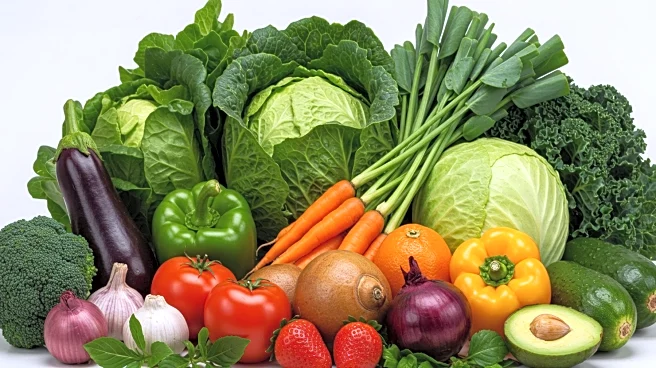What's Happening?
The food and beverage industry is grappling with the effects of climate change, which is impacting the yields of various crops. According to recent insights, certain crops like millet, amaranth, and sweet potato are proving to be more resilient to climate pressures such as heat and drought. These crops are not only able to withstand harsher conditions but are also nutrient-dense, offering potential replacements for less resilient crops. On the other hand, crops like coffee, cocoa, and rice are experiencing reduced yields due to climate stressors. Coffee, particularly the arabica variety, is highly vulnerable to rising temperatures, while cocoa and rice are affected by irregular weather patterns and drought, leading to increased prices and food security concerns.
Why It's Important?
The resilience or vulnerability of these crops has significant implications for global food security and economic stability. As climate change continues to alter weather patterns, the agricultural sector must adapt by focusing on more resilient crops to ensure a stable food supply. This shift could lead to changes in dietary habits and agricultural practices, impacting farmers, consumers, and the food industry at large. The increased prices of vulnerable crops like coffee and cocoa could affect consumer markets and economies reliant on these commodities. Additionally, the need for sustainable farming practices becomes more pressing, as the industry seeks to mitigate the adverse effects of climate change.
What's Next?
The food and beverage industry may need to invest in research and development to enhance the resilience of vulnerable crops or find suitable alternatives. Policymakers and industry leaders might focus on promoting sustainable agricultural practices and supporting farmers in transitioning to more resilient crops. There could also be an increased emphasis on developing climate-smart food systems that can withstand environmental changes. As these strategies unfold, stakeholders will need to collaborate to address the challenges posed by climate change and ensure food security for future generations.
Beyond the Headlines
The shift towards resilient crops could have broader cultural and economic impacts, potentially altering traditional farming practices and consumer preferences. There may be ethical considerations regarding the support and resources provided to farmers in developing regions who are most affected by climate change. Additionally, the focus on sustainable agriculture could drive innovation in farming techniques and technologies, leading to long-term shifts in the industry.










